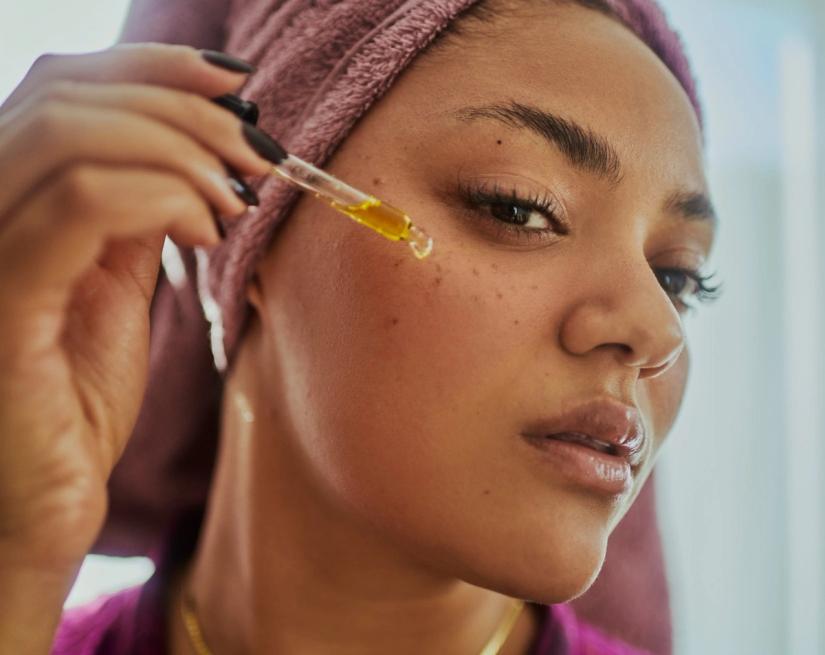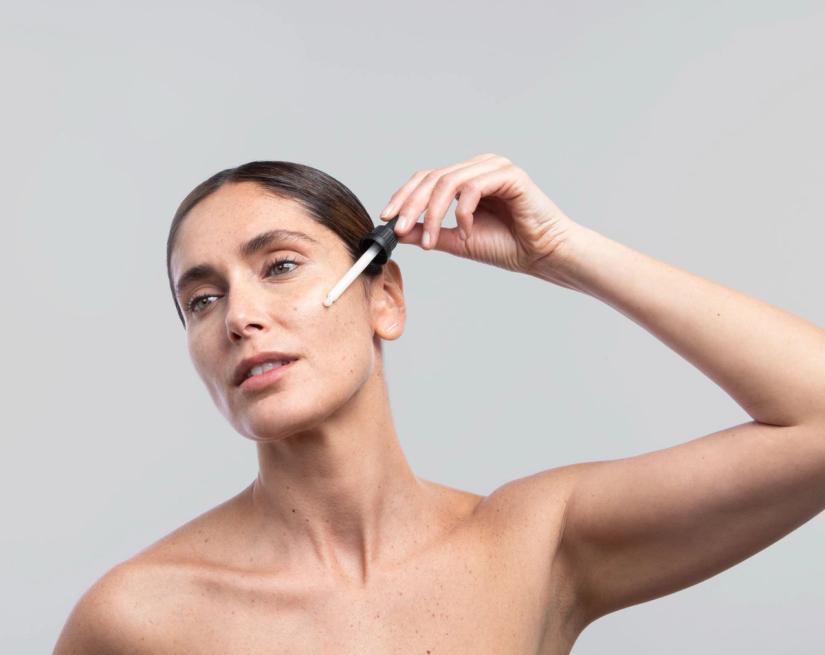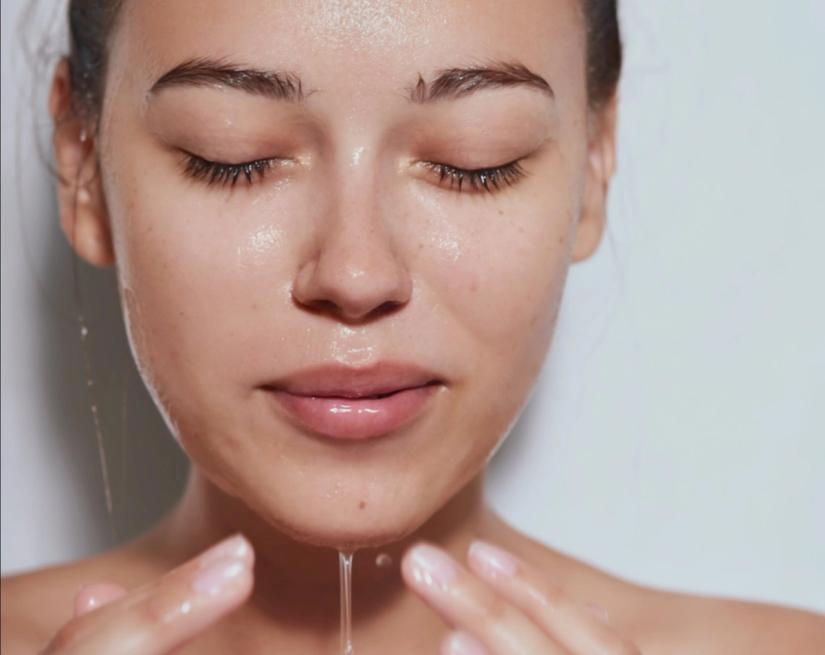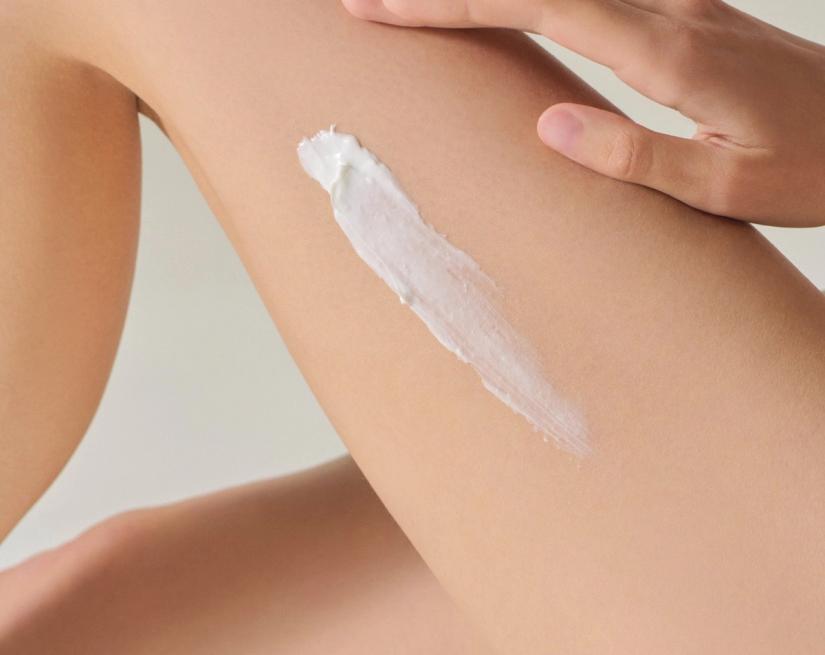skin care
How To Protect Your Skin From Premature Aging
Eve Mérinville | Corporate RD Excellence & SC RD and Innovation Director
10 min read
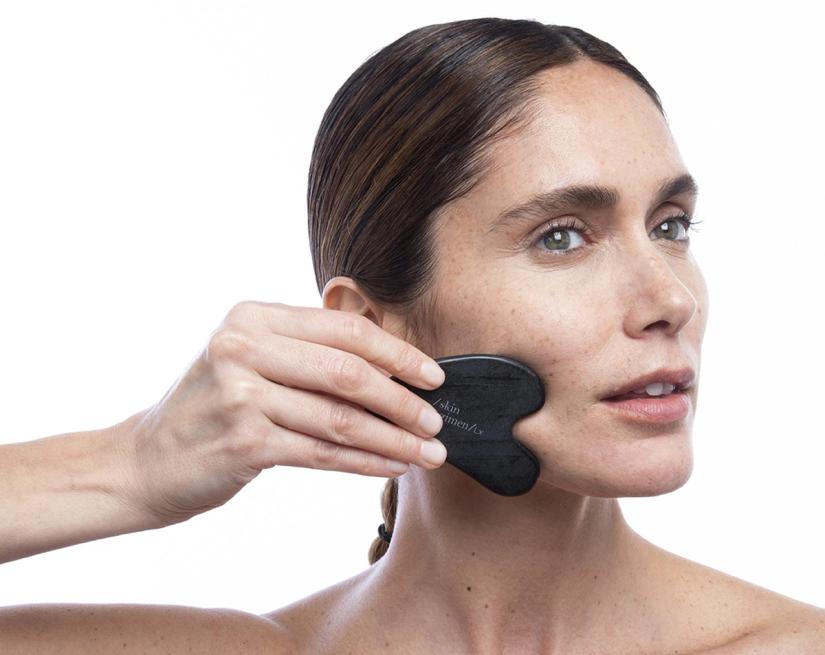
Our bodies change as we age, but if you’re developing wrinkles or losing hair while you’re still young, you might be wondering if you’re experiencing “premature aging.”
Aging is natural; in fact, our DNA physically changes as we age! The aging process can be a beautiful process—when it happens at the right time. But for some people, their body seems to age faster than their internal clock. Unless you’re trying to qualify for a discount, you probably don’t want to look older than you actually are.
If you’re one of these people, what’s happening, and why? What is premature aging, and how can you prevent it from happening to you?
"Our skin starts to age, biologically around the age of 25 and that's without the outside stressors such as sun exposure and pollution. To prevent premature aging, start early."
Elisabeth Nehme - Global Brand Ambassador Comfort Zone
What Is Premature Aging?
Dermatologists define premature aging as when individuals show signs of aging, like wrinkles, age spots, or fine lines, before age 35. Researchers don’t have one answer for what causes us to age, but they can agree on one thing: it’s a combination of genetic and environmental factors.
Genetic factors cause “intrinsic aging.” This is what naturally occurs as you get older. Intrinsic aging is largely out of your control, since it’s controlled by your genes.
Have you ever known someone whose hair turned gray super early, just like their dad’s did? That’s intrinsic aging at work.Signs of intrinsic aging include thinning skin and fine wrinkles. Some products can boost skin tightness or hide wrinkles, slowing intrinsic aging, but there’s no way to completely stop it.
“Extrinsic aging,” on the other hand, is caused by factors such as pollution, lifestyle, sun exposure, and diet. Signs of extrinsic aging include rough skin texture and coarse wrinkles.
Because extrinsic aging is influenced by the choices you make, it is largely preventable if you protect your skin throughout your lifetime. That’s good news, since extrinsic aging is entirely to blame for premature aging. After all, since intrinsic aging is naturally defined by our genes, it could never be “premature.”
Signs Of Premature Aging
| WRINKLES | DRY SKIN | SUN SPOTS | HAIR LOSS | |
| Unless you opt for cosmetic fillers or Botox, wrinkles are a natural part of aging. They often appear in your thirties as collagen production declines—collagen being the protein that keeps skin firm and elastic. Facial expressions like smiling or squinting can accentuate these lines over time. While wrinkles tell the story of your life, if they seem premature or pronounced, consider consulting a dermatologist or adopting an anti-aging skincare routine with a serum, eye cream, and moisturizer. | Everyone experiences dry skin from time to time due to the temperature and humidity of the air where you live. But if you are suffering from chronically dry skin that becomes cracked, becomes chapped, or bleeds, then you may inadvertently be exacerbating dry skin with your lifestyle. To combat and prevent dry skin, moisturize daily and drink plenty of water. If the condition doesn’t seem to get any better over time, consult a dermatologist for help dealing with this pesky problem. | Sun spots, or age spots, are dark patches that appear on sun-exposed areas like the face and hands. Unlike freckles, they don’t fade when sun exposure stops and can be larger in size. Treatments such as creams with hydroquinone and retinoids, or dermatological procedures, can help reduce their appearance. If you notice sun spots early in life, consult a dermatologist, as they can resemble skin cancer. Regardless of treatment, daily sunscreen use is essential to prevent further damage. | While you may think hair loss only affects men, many women also experience hair thinning as they age. That’s because the cells that stimulate new hair to grow slowly die as you age. As anyone who has ever been pregnant knows, hair loss can be triggered by many factors, not just aging. Many postpartum people experience hair loss due to hormonal changes. Diet and genetics also play a role. If you are experiencing hair loss but cannot identify the cause, consult your doctor. |
Causes Of Extrinsic Aging
Yes, you have laugh lines. But are they just an indicator of good times from your past, or are they the first sign of premature aging? The causes of extrinsic aging vary, and everyone is going to be susceptible to them in varying degrees due to just, well, living. Here are the main causes of premature aging.
Sun exposure
Overexposure to the sun is the number one cause of premature aging. Any time you develop a tan (or a sunburn), you’re contributing to the aging of your skin. Daily exposure to sunlight in an urban environment, contributes to your skin developing free radicals that can trigger aging.
The sun’s rays actually damage your skin cells, even if you don’t get burned. They cause changes in your cells that can stimulate your cells to create too much melanin, which results in sun spots. They also impact the elasticity of your skin, causing wrinkles.
Smoking
Smoking exposes your entire body to toxins, damaging the elastic fibers in your skin. Additionally, smoking causes your blood vessels to narrow, which reduces the amount of oxygen available to nourish your skin cells. All this contributes to the premature development of wrinkles, particularly on your face.
Dehydration
It makes sense that if you’re not adequately hydrated, your skin is going to become dry. But why does dryness matter for aging? Dryness makes your skin less effective as a barrier against the outside environment. Additionally, dryness makes wrinkles appear deeper and more noticeable.
Diet
More studies are needed on this, but from early data it appears that a diet high in carbohydrates and sugar can cause premature aging. Similar to dehydration, if your skin cells are not properly nourished, they will not be as effective at protecting your body from the outside world and will be more susceptible to toxins and dryness.
Environmental pollutants
Your skin is the largest organ in your body, and it’s exposed to environmental toxins every day. Studies show that pollutants, particularly ozone and particulate matter, can exacerbate age spots and wrinkles.
Stress and poor sleep habits
Have you ever noticed that presidents age dramatically while they’re in office? They might start their term with dark hair, but by the time they finish, they’re often fully gray. That’s because stress (and a lack of sleep resulting from stress) contribute greatly to aging.
Stress causes your sympathetic nervous system (what we often hear called “flight or fight” response) to activate. This causes your cells, particularly the cells responsible for hair growth and pigment, to become overactive. These cells can only be active for so long, and once their energy reserves are used up, they die.
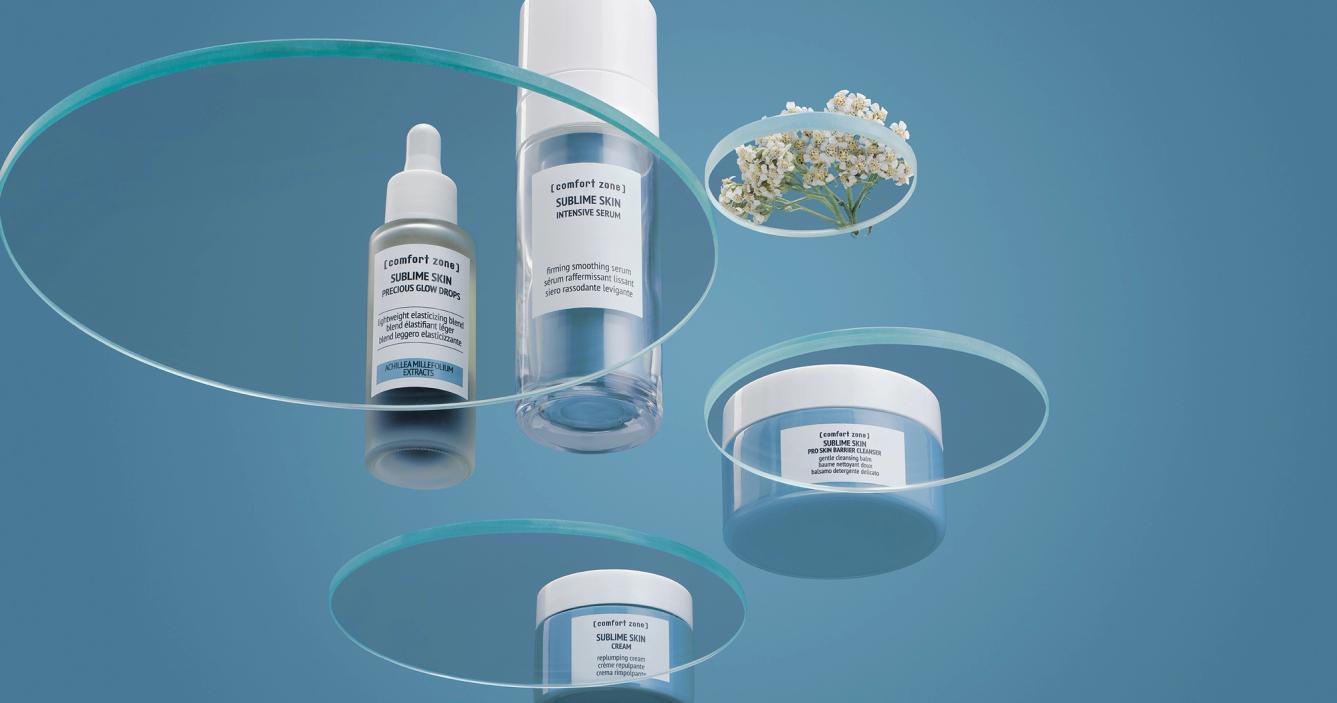
What Can You Do To Prevent Premature Aging?
The best way to prevent premature aging is to live a healthy lifestyle that nourishes your body and skin.
- Avoid sun exposure, including (and especially!) tanning beds. Never spend time in the sun without sunscreen, and wear a wide-brimmed hat if possible. If you prefer the look of tanned skin, use tanning lotion—your skin will stay moisturized and protected from dangerous sun rays!
- Quit smoking. Smoking causes a multitude of health problems and contributes to premature aging.
- Avoid excessive amounts of alcohol or caffeine. These substances can cause you to become dehydrated. Instead, focus on drinking at least 6 cups of water a day to maintain healthy, hydrated skin.
- Eat a diet rich in fruits and vegetables. Besides preventing heart disease and supporting your weight, energy level, and mental health, your skin will stay nourished, too! In addition to a healthy diet, consider taking a multivitamin to supplement any areas of nutritional deficit and prevent hair loss.
- Start a habit of regular exercise. Exercising regularly helps reduce stress, which contributes to aging. It has also been shown to improve your circulation, increasing blood flow to the skin.
- Moisturize, moisturize, moisturize! Skin care is essential to preventing premature aging. Combining Comfort Zone anti-aging skin cream and serum will help your skin stay smooth and firm, reducing the appearance of wrinkles.
- Incorporate vitamin C into your skin care routine. Retinols are scientifically proven to reduce the appearance of dark skin spots and to even out skin tone. Vitamin C brightens up the skin and keeps it young and health. /skin regimen/Lx retinol serum and vitamin C provide effective and gentle results for sensitive skin.
- Don’t forget to use an eye cream. If you tend to have a fatigued look, you can choose eye patches to make your eyes look immediately brighter.
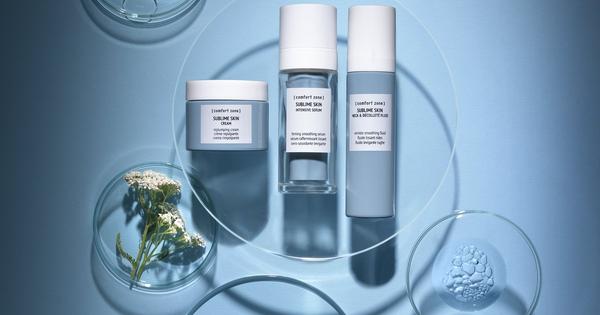
Support The Natural Skin Aging Process
Our best anti-aging advice is: embrace aging. Try not to see every wrinkle or sun spot as a flaw. Instead, reflect on the full life you’ve lived that resulted in the signs of your age.
Nourish your skin with a balanced diet, water, and Comfort Zone anti-aging products to maintain your youthful glow, no matter how old you are. You deserve to feel comfortable in your own skin—our goal is to support you on your journey with our clean, results-driven beauty products and our thoughtful approach to aging and wellness.
